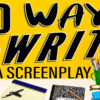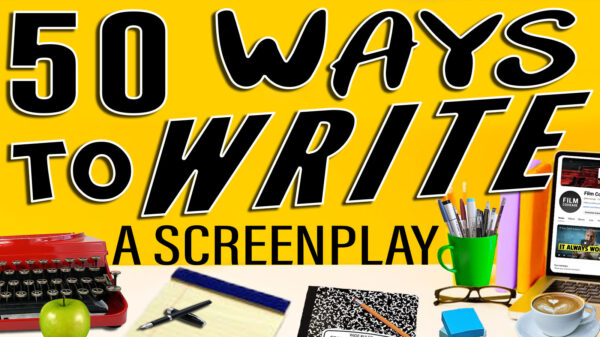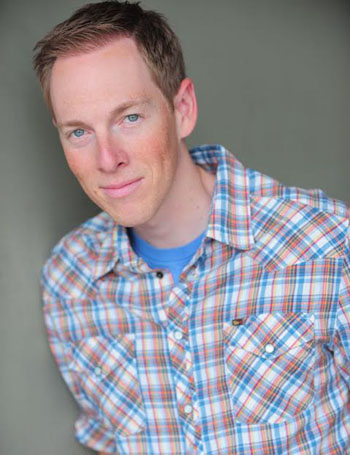
JONATHAN PERKINS – SCREENWRITER/PRODUCER
.
Film Courage: You chose the double major of Marketing and Entrepreneurship, why? Do you recommend others destined for an entertainment career elect a double major?
Jonathan Perkins: When I was in college at Colorado State, I actually didn’t know I wanted to work in the entertainment industry. I was trying to figure things out still! Business seemed to apply to a wide range of things, so that’s why I majored in it. I have a couple pieces of advice for people that want to work in entertainment:
1. Strongly consider schools like USC, UCLA, or AFI for grad work. You don’t need to go to these schools to work in the biz, but it certainly doesn’t hurt!
2. Focus. This was actually advice shared from Bill Gates and Warren Buffett on keys to success. Find out what you want to do, then focus focus focus on it.
.
.
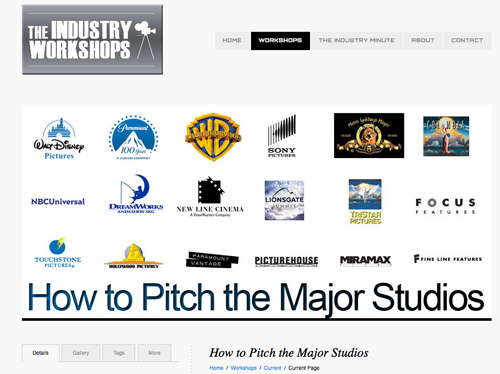
Film Courage: When did you arrive in LA? What were your first jobs? Impressions of how the industry worked?
Jonathan: I moved to LA in 2005 and had several odd jobs. I worked in internet marketing (SEO), and even started an exotic car rental company. I quickly learned that you tend to progress in the industry you start in. For example, if you want to work in the entertainment industry, it’s best to start with a job in the entertainment industry. My non-industry jobs were taking me in other directions.
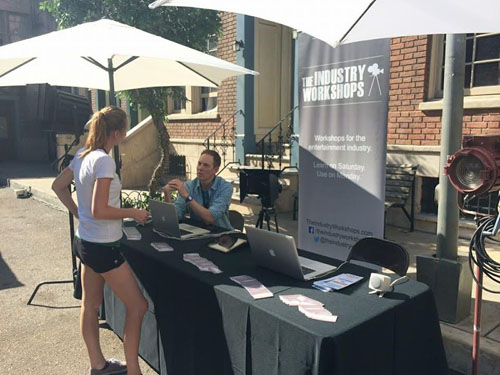
Film Courage: How did you land s job as a script reader?
Jonathan: In 2008, I took a production intensive called Act One. It qualified for graduate level work through Pepperdine (though I didn’t finish a degree there). Act One helped place me in my internship at Alcon Entertainment, where I worked as a script reader, and eventually, at Dreamworks Animation.
Film Courage: What was your day like as a script reader?
Jonathan: I’d usually do 2 or 3 scripts a day, depending on length. It would take me about 3 hours to read and write my notes on them. So I’d do one in the morning, take a break for lunch, then one or two in the afternoon.
Film Courage: Did you ever rethink a “pass?”
Jonathan: Yes. When I was a reader, I also knew what type of scripts they were looking for. Sometimes good stories would be submitted to the wrong company. For example, what is Disney going to do with a horror film? The other time I would reconsider a script is if it stayed in my mind long after. I may have overlooked it when I read it, but perhaps something from the story resonated with me.
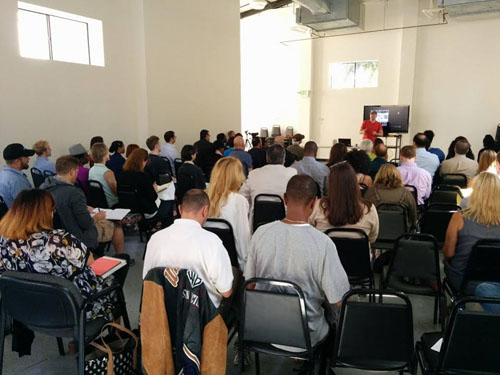
.Film Courage: What would intrigue you about a script?
Jonathan: Really a combination of things – effective writing (the writer knows how to get you hooked and conveys the necessary information they need to), compelling characters, and interested ideas / concepts brought forth.
Film Courage: Your opinion of film and TV storytelling in 2015?
Jonathan: I’m fascinated by storytelling and how it has evolved. I think it’s the universal currency. And it has been there since the beginning – from cavemen writing on walls to novels to 100-foot movie screens. The last several years have been interesting to see the popularity of found footage films, rise in unscripted content, and TV shows that rival film storytelling.
Film Courage: Have current films improved or lost their human connection in terms of story?
Jonathan: Beauty is in the eye of the beholder. I didn’t care for Tree of Life, but get teary-eyed when Peter Pan can’t reach his kids in Hook. Objectively, I’d say they’ve stayed the same.
Film Courage: Did you attend workshops before you began The Industry Workshops?
Jonathan: Yes, I had been to several different workshops. Ones for actors, writers, directors, Q&A’s, etc. I’d also attended longer programs, which were either a series of workshops, or classes structured in the quarter or semester system at a school.
Film Courage: What were the pros and cons of this workshop?
Jonathan: A positive of almost any workshop is the networking. I love the entertainment industry, and it’s easy for me to get wrapped up in conversations about it. When you attend workshops and classes, you’re around other people that feel the same way. Many times, I’ve met people that I’ll end up working with later on.
Some negatives – First, you have to do your due diligence to make sure the speaker is credible to teach. There are many “proclaimed professionals” in this town that are just giving their opinions, and they don’t have the resume to back it up. Another con, in my opinion, is no real world application. I’ve been to workshops where the teaching was good, but I’d wonder how it relates to helping me get a job or make money in the industry. Which brings me to another con – price. Some of the workshops these days are really expensive. If you’re starting out in the industry, shelling out a lot of money can be frustrating, especially if the workshop isn’t a good one.
Film Courage: What made you begin The Industry Workshops?
Jonathan: Back in 2012, my friend Chris and I were working on this project. We’re both very DIY kinda guys, but we needed some After Effects. There were tutorials online, but we both thought it would be helpful just to talk to a professional directly to see how they had done it (and be able to ask questions if we needed to). However, we weren’t looking to go to two years of film school. We wanted something a la carte. So, we created Next Film (designed to teach people the skills they’d need to work on their next film), but later changed the name to The Industry Workshops to include all aspects of the entertainment industry.
Film Courage: Most common questions asked in The Industry Workshops?
Jonathan: Where do you get money to make your project? My answer – if you find someone, let me know.
Film Courage: Most unusual question asked in The Industry Workshops?
Jonathan: This isn’t a question, and it’s happened several times, so perhaps not unusual, but weird each time. I’ve had several people, usually brand new to Hollywood, tell me they have the BEST screenplay or story ever. My response – perfect, then you won’t need any help getting it made.
Film Courage: Any famous graduates?
Jonathan: Not any names without their permission, but I’ve been impressed to see a wide range of people at our workshops. From people just getting started, to seasoned professionals that have made millions of dollars from their work.

.
Film Courage: First movie that made you cry or feel strong emotions?
Jonathan: I have a theory about this! Desensitization. Let me explain. One of the films I remember astounding me as a child was Star Wars. Yes, it’s a fictional story, but when you’re six years old, that’s real to you! After you’ve seen multiple space movies, none really affect you the way the first one did.
One of the movies that made me cry (because I was laughing so hard) was Airplane! Sadly, I don’t know if I’ve ever laughed as hard in a movie since. Why? Desensitization. 🙂
Film Courage: First movie you watched that made you want to work in entertainment?
Jonathan: I ask this same question to people that come to the workshops! I can’t narrow it down to one film, but Indiana Jones, Back to the Future, Rad, Top Secret, etc. all had some strong influences.
Film Courage: Your experience the first time you pitched a script and how you’d change it?
Jonathan: I think the first time I pitched a script, I was so nervous about saying the right things. It ended up coming across as more of a door to door sales pitch which made us both uncomfortable. Now, I try and focus on the core of the story, and the hook. Saying enough to entice them, but not to inundate them with too much.
Film Courage: Three things most writers fail at when pitching their script?

.
Jonathan:
1. Explaining unnecessary details.
2. Pitching to the wrong audience. (Know what the people you’re pitching are interested in.)
3. Know when to talk, and when to shut up.
Film Courage: What is your current Industry Workshop on the horizon and what’s the topic?
Jonathan: The next one is from Ryan Heppe, the producer of the Short Circuit remake, and TJ Hooker. He’s made a living selling projects to the major studios, and teaches his process. It’s called How to Pitch the Major Studios (more info here), and it’s Saturday, April 25th for $35.
Film Courage: Can you talk about your current project Boone the Bounty Hunter?
Jonathan: I’m really excited about this project. It’s about a reality show bounty hunter that gets in over his head when he takes a real world bounty and goes after a Mexican drug lord. I co-produced and wrote it with the film’s lead, former WWE superstar John Hennigan. It’s an action comedy along the lines of Lethal Weapon or Rush Hour. For a budget movie, we packed in a lot of great action and some good laugh out loud moments. We’re aiming for a limited theatrical release later this year!
BIO:
Born and raised in Colorado, Jonathan Perkins graduated from Colorado State University with double majors in Marketing and Entrepreneurship. He attended the Act One Executive program, has worked at Alcon Entertainment and Dreamworks Animation, and is now a working writer, producer and sales agent for television and feature film. He’s also a huge fan of Mountain Dew.
.






